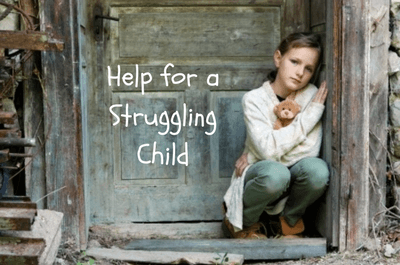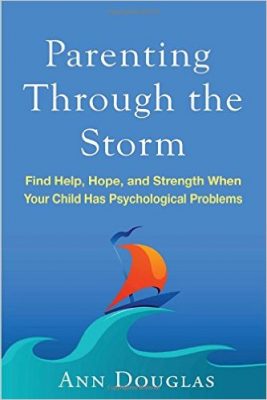
Your child is going through a difficult time. You don’t quite know what’s at the root of the struggle, but you do know that you want to do whatever you can to help.
Fortunately, there are some practical things you can do, starting right now, to begin to make things better for your child in ways that build resilience and teach them that struggle is normal.
It is important to understand that you have the power to make a difference, even before you obtain a formal diagnosis, if one is needed. Understanding this allows you to shift from worry to action mode right away, while you continue your quest for answers.
1. Use parenting strategies that bring out the best in your struggling child.
Parenting can be exhausting—and meeting the needs of a struggling child who is angry or upset or afraid requires an extraordinary amount of patience. The best way to tap into this patience—to be the kind of parent you want to be—is by using parenting strategies that bring out the best in your child. For example,
- Ask yourself, “What does my child need from me right now?” This will help you focus less on how you are feeling and more on what you can do to help.
- Validate your child’s feelings. When you let your child know that his feelings make sense, you make it possible for him to let go of some of the emotion that he’s carrying and to begin to shift into problem-solving mode.
- Be a calming presence. One of the most powerful things you can do to help your struggling child rein in her out-of-control emotions is by remaining calm yourself—by transforming yourself into a haven of stability and reassurance.
2. Seek support from your parenting village.
If it takes a village to raise a child, it takes a village to support that child’s parent. And when a child is going through a difficult time, the need for support is even greater.
But reaching out for that kind of support takes courage, particularly as your child grows older. It’s so much easier to speak frankly about the challenges of parenting a newborn than it is to be open and honest about your worry about a six-year-old who keeps getting suspended from school, or a teenager who keeps climbing out the window at night. I know this for a fact because I’ve been that parent. In fact, I’ve been both of those parents!
Tapping into support from other parents who truly understood (because they had walked these same kinds of walks with their own kids) made it possible for me to weather these particular storms of parenting. I needed their practical support, their hard-earned wisdom, and their quiet understanding that I wasn’t a bad parent and my kids weren’t bad kids. After all, having a struggling child doesn’t make you a bad parent—just as being a struggling child doesn’t make your child a bad kid. You’re just dealing with a particular challenge as a family.
3. Stop treating self-care like a luxury.
Self-care isn’t about being selfish. It’s about self-preservation. So don’t think of the time you spend going for a walk, talking with a friend, or otherwise taking care of your own needs as time you’re taking away from your relationship with your child: think of it as time you’re investing in your relationship with your child. After all, no one needs a healthy and happy parent more than a struggling child. An act of kindness toward yourself is therefore an act of kindness toward your child.
So prioritize sleep. Nurture your body with healthy food. Tap into the mental and physical health benefits of physical activity. And replenish your spirit with generous dollops of fun. You owe it to yourself—and your child.
Editors Note
 If you are the parent of a struggling child, Ann Douglas’ latest book, Parenting Through the Storm: Find Help, Hope, and Strength When Your Child Has Psychological Problems, is a highly recommended read. One of our contributing authors, Michele Borba, Ed.D, author of UnSelfie: Why Empathetic Kids Succeed in Our All-About-Me World writes the following about Ann’s book: “Ann Douglas offers hope for the many parents who are searching for answers–especially because she’s been through it all herself. The book is reassuring that there’s light at the end of the tunnel, but also realistic and based on research. It provides the tools you need to make tough decisions and help your child. I love this book!”
If you are the parent of a struggling child, Ann Douglas’ latest book, Parenting Through the Storm: Find Help, Hope, and Strength When Your Child Has Psychological Problems, is a highly recommended read. One of our contributing authors, Michele Borba, Ed.D, author of UnSelfie: Why Empathetic Kids Succeed in Our All-About-Me World writes the following about Ann’s book: “Ann Douglas offers hope for the many parents who are searching for answers–especially because she’s been through it all herself. The book is reassuring that there’s light at the end of the tunnel, but also realistic and based on research. It provides the tools you need to make tough decisions and help your child. I love this book!”
Image Credit: J. Polc
RELATED TOPICS:
Published: October 3, 2016



